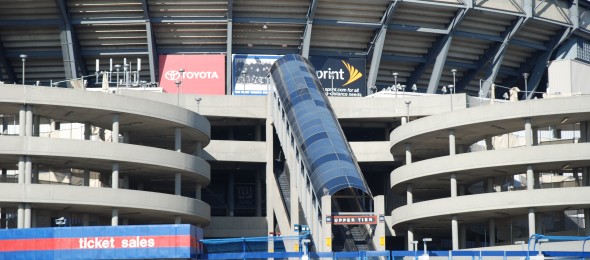Last week, the Supreme Court of Ohio ordered two lawsuits filed by former professional football players over Cleveland, Ohio’s so-called “jock tax” to mediation. The cases originated after former Chicago Bears linebacker Hunter Hillenmeyer and former Indianapolis Colts center Jeff Saturday received a two-percent income tax bill from the City of Cleveland in connection with at least one National Football League (“NFL”) game that was played at the Cleveland Browns’ stadium. Interestingly, Saturday also claims he was injured and not in attendance at a 2008 NFL game for which he received an income tax bill.
According to the former players, the city unconstitutionally charged them at a higher rate than it charges other workers who perform services in Cleveland. One report states,
Cleveland determines visiting players’ taxable income through a “games-played” method, dividing their salaries by the total number of games their teams play.
Hillenmeyer and Saturday say that Cleveland should instead use a “duty-days” method: calculating his taxable salary not by game days, but by all work days – including practices, team meetings, and pre-season training camps.
Of the eight U.S. cities that have a jock tax – Cincinnati, Cleveland, Columbus, Detroit, Kansas City, Philadelphia, Pittsburgh, and St. Louis – only Cleveland uses a “games-played” formula, according to Robert Raiola, a New Jersey-based CPA who specializes in sports taxation.
For the players, the lawsuits are more about principle than about money. Hillenmeyer, a former Chicago Bears linebacker, is seeking a total refund of $5,062. Saturday, who now works as an ESPN analyst, is asking for $3,294.
Because the Cleveland Board of Income Tax Review and the Ohio Board of Tax Appeals ruled in favor of the city, the Supreme Court of Ohio must hear the players’ appeal. It is apparently standard practice for the Ohio Supreme Court to refer all appeals to mediation for a potential resolution prior to placing them on the docket.














